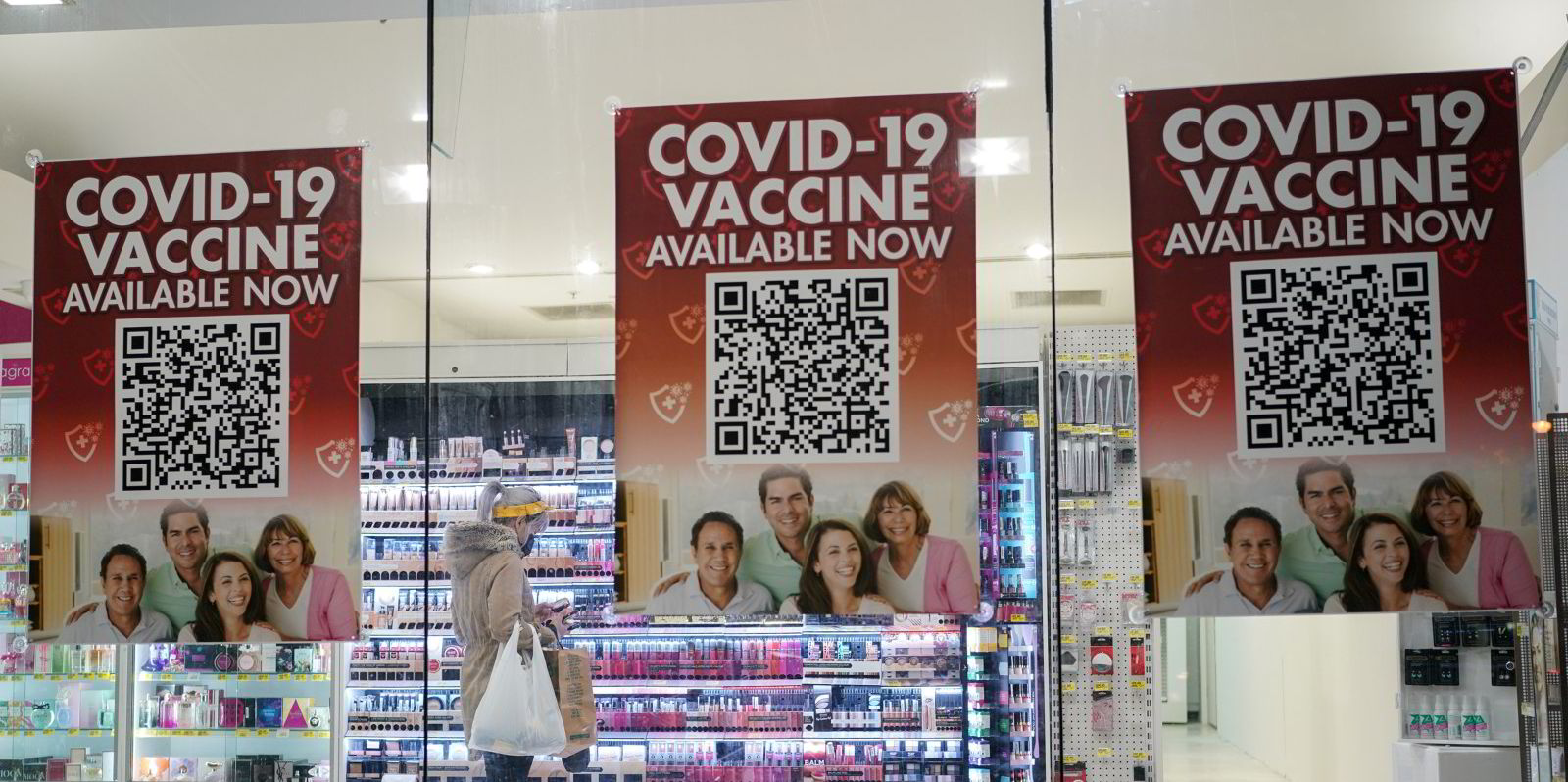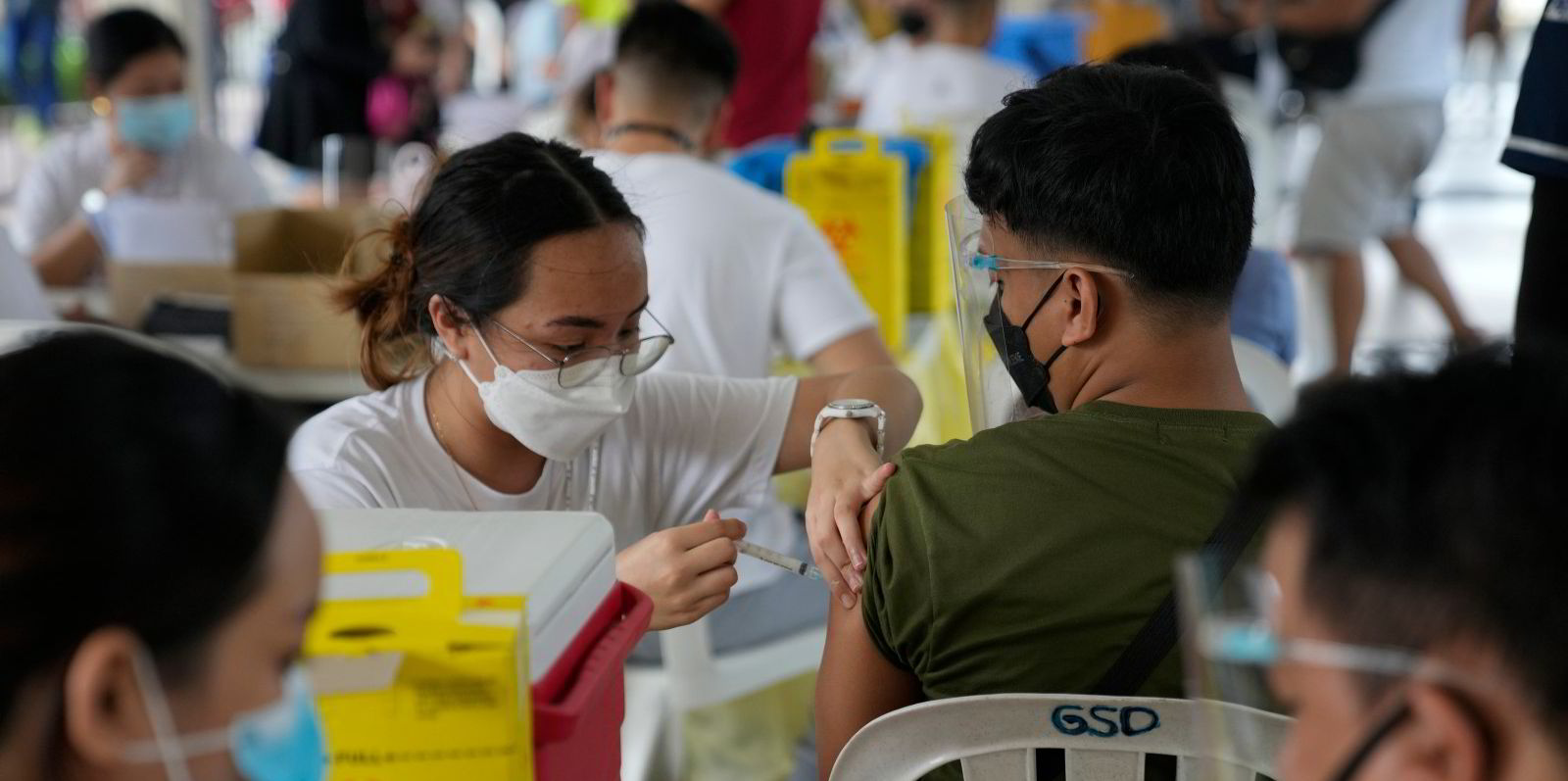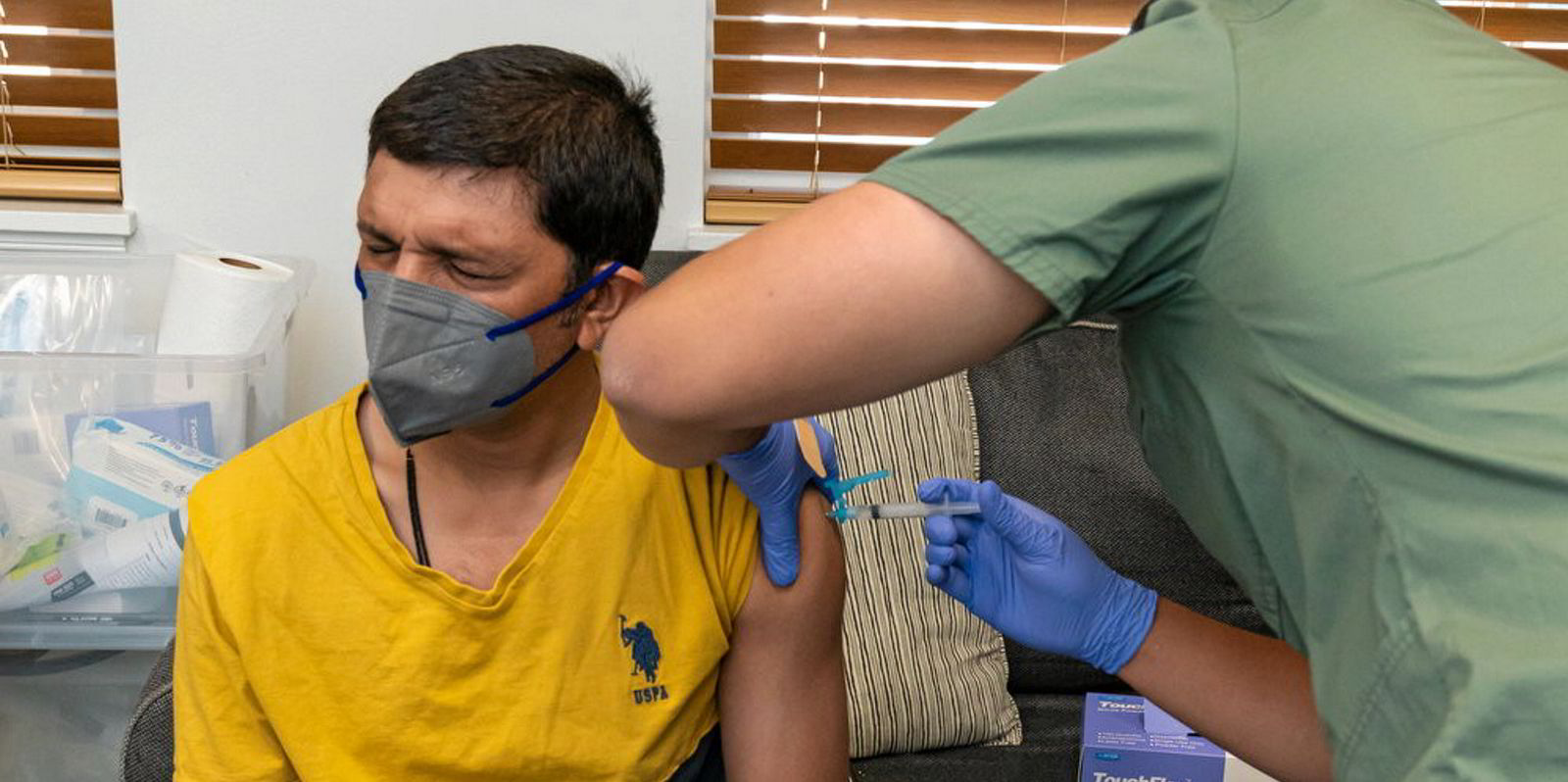As an increasing number of companies seek to mandate vaccines in the workplace and the US government aims to require them too, shipping outfits are still largely avoiding mandates for their workers.
There are signs that cruise companies are starting to require it in offices and some shipowners are looking to vaccinated seafarers when bringing on new crew members.

From 1 October, employees in high-risk sectors such as healthcare, childcare and retail will either have to be vaccinated or undergo regular testing under the Singapore government’s recently announced Vaccinate or Regular Test (VoRT) regime.
Companies in the corporate sector may voluntarily take part in the VoRT scheme, for which the government will also fund the test kits for the medically ineligible employees.
While the scheme does not mandate vaccinations, it includes several measures designed to encourage eligible employees who choose not to be vaccinated to change their mind. This includes making them pay for their testing kits and use their regular leave to cover any extra Covid-19 sick time once their medical leave allotment has been used up.
Several Singapore-based shipping companies contacted by TradeWinds said that while they are legally unable to require employees to get vaccinated, they are considering taking part in the VoRT scheme, although they said almost all, if not all of their office staff have already been vaccinated.
But most shipowners, operators and service providers contacted by TradeWinds said they are not mandating coronavirus vaccines but instead following local regulations.
Frustrated by a stubborn plateau in vaccination rates, US President Joe Biden has ordered the Labor Department to issue rules that would require companies of more than 100 employees to make it mandatory to either get the vaccine or submit to regular Covid-19 tests.
But two US-based shipowners — Connecticut’s Eagle Bulk Shipping and New York’s International Seaways — have yet to impose vaccine mandates on staff.
“We have been following local/country guidance in each of our respective locations,” said Eagle chief executive Gary Vogel, whose company has offices in Stamford, Singapore and Copenhagen.
Evaluating Biden directive
“In terms for the latest directive issued by the US administration, we are currently evaluating. As of today, approximately 90% of our US-based staff is vaccinated. We have instituted a mask mandate for our unvaccinated colleagues, or roughly 10% of our staff.”
International Seaways’ policy was summarised by chief executive Lois Zabrocky.
“Here in the US we are extremely fortunate to have had early access to our choice of three of the most effective vaccines available in the world,” Zabrocky said.
“The [International] Seaways office staff has continued to work from home this summer while the variants have dominated headlines. We are encouraging our staff to get vaccinated, but do not yet have a mandate.”
The cruise sector, where cruise lines have already fought in court to require vaccines for passengers, is more open to requirements for staff.
Niels-Erik Lund, chief executive of cruiseship owner SunStone Ships, said his company introduced a vaccine mandate at its Miami office.
Monday morning test results
"If you are not fully vaccinated, you have to have a specific acceptable reason, and then you have to show a new PCR test every Monday morning," he said.
In London, shipbroker Braemar Shipping Services is not mandating vaccines, but it is asking employees to subject to twice weekly lateral flow tests, according to chief financial officer Nick Stone.
Swedish ferry operator Stena Line is also not mandating vaccines, instead focusing on local rules where the company operates.
"We will continue to implement a flexible working solution, including possibilities to work remote, for our office employees and keep some of the safety measures such as social distancing, hand sanitisers and recommendations to stay home if you feel sick," said PR and communications manager Nick Stone.
In Asia, it is difficult for companies to mandate that their office staff be vaccinated as the programmes in most countries remain voluntary.
Many Asian countries have struggled to obtain vaccines and the roll-out has been slow. This makes implementing a mandatory policy impractical.
Khalid Hashim, managing director of Bangkok-based Precious Shipping, said that almost all the company’s office staff have been vaccinated despite only 17.6% of Thailand’s overall population being fully vaccinated.
“We are encouraging rather than mandating vaccines. This applies to our staff and their families,” he said.
Hashim said Precious has encountered no resistance from employees. “People in Thailand listen to reason. There is not much of an anti-vaxxer movement here,” he added.
Making vaccinations mandatory is somewhat of a moot point for most companies in Singapore, as the country’s vaccination programme has been widely taken up, with 81% of the population fully vaccinated as of 12 September, and 84% having received their first dose. Vaccination levels are highest amongst the country’s working age demographic.
All companies in Singapore are required to follow the government’s regulatory framework that currently does not permit employers to mandate employees must be vaccinated.
Under no circumstances can an employer terminate or threaten to terminate the service of an employee on the basis of vaccination status alone as Singapore’s national vaccination programme remains voluntary.
“Making vaccinations mandatory is something we discussed at length, but we concluded doing so would put us at risk of a lawsuit,” said Esther Gan, vice president of marketing and communication at Wilhelmsen Ship Management.
At sea, several companies are recruiting fully-vaccinated seafarers to sign new contracts to join vessels, according to the International Transport Workers' Federation (ITF).
The ITF seafarers' chair, David Hendel, said it has historically been the norm for employers to require vaccinations, with the yellow fever inoculation being a common example.
"By and large, seafarers have historically accepted vaccinations against diseases such as yellow fever as part of working in the international shipping, cruise and bulk cargo industries,” he said.
“It is difficult to see how employers requiring vaccination against Covid-19 is exceptional or markedly different from the accepted industry practice of them requiring other vaccinations.”
Vaccinations lag
Still, recent data from the Neptune Declaration Crew Change Indicator showed that 21.9% of seafarers are vaccinated, a 6.6 percentage point improvement from August.
The ITF is concerned that vaccine mandates could be inequitably felt by different groups of seafarers.
"Seafarers who are willing to be vaccinated in the major seafarer labour-providing countries could be blocked from taking up contracts, if such requirements for employment are introduced amidst a lack of supply of the vaccine in their home nations," Hendel said.





